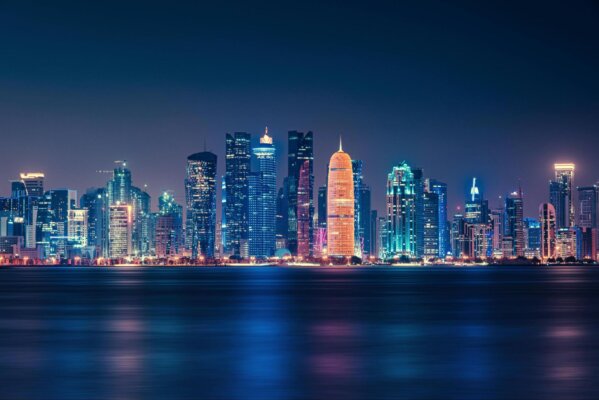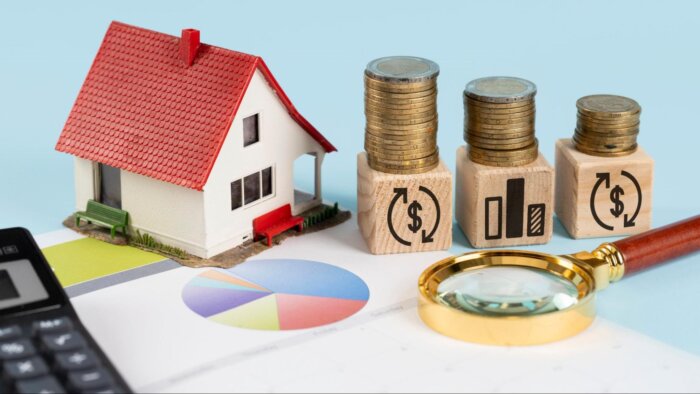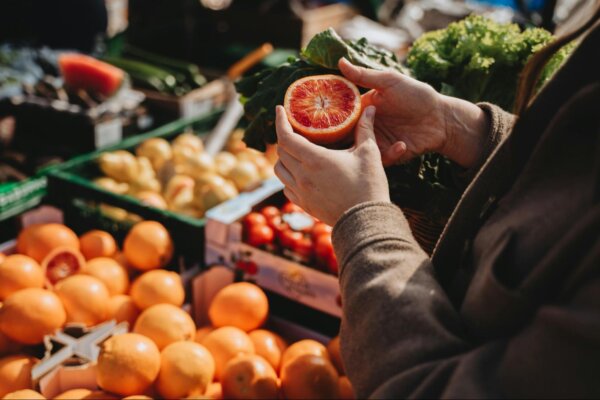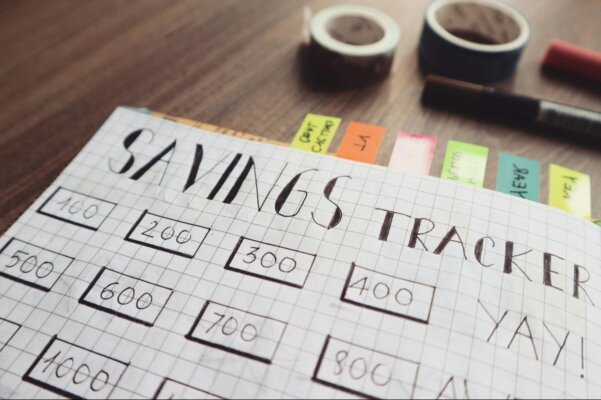Are you thinking of moving to Doha in 2026? Whether you’re relocating for work, study, or a fresh start, understanding the cost of living is essential for managing your budget and planning ahead.
Doha offers a high quality of life, world-class infrastructure, and tax-free salaries, making it a top destination for expats. However, living expenses vary significantly based on lifestyle, location, and family size.
In this guide, you’ll find a detailed breakdown of what it costs to live in Doha, from housing and utilities to dining, transport, and leisure. Whether you’re a single professional, a student, or moving with your family, this comprehensive overview will help you budget wisely and make the most of your life in Qatar.

Breakdown of expenses
Accommodation
Accommodation will likely be your biggest monthly expense in Doha.
The monthly rental for a one-bedroom apartment in the city centre is around 5,938 QAR. However, you’ll pay closer to 4,187 QAR monthly for a similar apartment outside the city centre.
Likewise, for a three-bedroom apartment in the city centre, expect to pay roughly 11,538 QAR monthly. The rent for a similar apartment in the periphery is around 8,574 QAR.
Rentals in higher-end neighbourhoods with more luxurious options, like Pearl Island, can be pretty steep. A 3-bedroom unit can cost almost 38,000 QAR, and the starting monthly rental for a studio apartment here is 4,750 QAR.
Lusail City is an upcoming business and residential district. The rent for a 3-bedroom apartment here ranges between 7,000 QAR and 19,000 QAR, and studio flat rentals start at 5,000 QAR.
Utilities
Your utility bills depend on how much you use. On average, you’ll spend around 317 QAR monthly on electricity, water, cooling, heating, and garbage disposal for an 85 sq. m. apartment.
Broadly, the electricity and water tariffs are as follows:
| Water (layers) | Tariff (QAR) |
| (1 – 20) | 5.5 |
| (21 – 250) | 7 |
| above 250 | 10 |
| Electricity (layers) | Tariff (QAR) |
| (1 – 2000) | 0.11 |
| (2001 – 4000) | 0.13 |
| (4001 – 15000) | 0.18 |
| above 15000 | 0.26 |
Internet and mobile plans are also reasonably priced. Expect to pay around 317 QAR monthly for high-speed internet and about 133 QAR for a mobile plan with 10 GB of data and calls.
Food and groceries

If you cook at home, your grocery bills can be manageable. Everyday essentials are available at local corner stores called baqalas, which are found in almost every neighbourhood.
Here’s what you’ll typically pay:
- One litre of milk costs 7.62 QAR
- A 500 g loaf of white bread is priced at 5.52 QAR
- One dozen regular eggs are available for 9.15 QAR
- One kilo of onions is sold for 4.05 QAR
- One kilo of apples costs 7.59 QAR
- A 1.5 litre bottle of water can be purchased for 1.84 QAR
Transportation
Doha’s public transport system is efficient and budget-friendly. You can get around using the Doha Metro, Lusail Tram, buses, or Karwa taxis.
A monthly metro pass costs just 120 QAR, and a single ride on public transport is only 2 QAR. If you opt for taxis, expect to pay 8 QAR as a base fare, with 8 QAR/km, and 50 QAR/hour for waiting time.
For the public bus service, a 24-hour pass that covers two trips costs 10 QAR. However, the monthly pass is priced between 730 QAR and 1,460 QAR.
One litre of gasoline usually costs 2.07 QAR per litre. However, vehicle insurance can be a substantial expense. It is annually calculated at 4% to 7% of your car’s value. Annual inspection may cost around 150 QAR.
Dining and leisure
Your dining expense in Doha depends on where and how often you eat out.
- A meal at an inexpensive restaurant will cost you around 30 QAR.
- A three-course meal for two at a mid-range restaurant costs approximately 200 QAR
- For a combo meal at a fast food joint, you may end up paying about 26 QAR
A monthly fitness club membership fee in Doha is around 443 QAR, while a cinema ticket costs roughly 45 QAR.
For a sports enthusiast, using the tennis court facility for about an hour over the weekend may cost you approximately 113 QAR.
Comparisons with other international cities
The cost of living in Doha is approximately:
- 58.3% cheaper than New York
- 40% cheaper than London
- 150% more expensive than Kathmandu
- 23% less expensive than Dubai
Cost of living in Doha by household

Students
Students in Doha can manage their living costs effectively by opting for shared accommodation or dorm-style housing. Rent is usually cheaper on the outskirts than in the central areas.
Groceries, too, are cheap, especially when buying seasonal produce. Electricity, water, and the internet are also reasonably priced. Transport is affordable and convenient. Public transport trips start from 2 QAR per journey. So, as a student, you can easily balance your budget.
Singles/Bachelors
Singles living on their own typically encounter a higher price-to-rent rate than students. However, they can easily save by living on the outskirts.
Food, utilities, and transportation remain similar to student expenses. Eating out at casual cafes and cooking at home will decrease monthly payments. Shared rides and metro passes help reduce transportation costs.
Couples
A couple’s monthly income must be higher to lead a comfortable lifestyle.
Renting a one or two-bedroom apartment in a prime location will affect your salary. Groceries, utilities, and dining out also contribute to your monthly expenses.
Residing away from prime areas significantly reduces your expenses.
Families
Families encounter the highest monthly expenses. It is predominantly because of their:
- Larger accommodation needs
- Substantial grocery requirements
- Higher utility usage
- Extra expenditure on school fees
- Added healthcare expenses
You may need to cater for around 10,000 QAR monthly to rent a comfortable space for your family.
Salary and affordability
The average monthly salaries in Doha vary depending on the industry, specific role, and experience. However, residents have a higher net purchasing power since no personal income tax is levied.
Domains like engineering, finance, and IT often command higher compensation. Expats receive several employer benefits, such as:
- Housing
- Insurance
- Other allowances
These reduce the financial drain. With careful planning, you can conveniently cover your expenses when residing in Doha and save for the future.

How can you save on general expenses in Doha?
Living outside the city centre is one of the most effective ways to reduce monthly expenses in Doha.
Some good options are:
- Al Thumama
- Al Gharrafa
- Al Wakrah
All these places have relatively lower rents. Yet, they are well-connected to the rest of the city.
Further, consider sharing your space. If sharing is not convenient, look for studio flats. These can reduce your monthly expenses.
Use public transport to travel within Doha and make your commute more affordable. If you need to travel locally frequently, opt for a monthly pass. It will add to your savings.
Some of the reliable public transport options are:
- The Metro
- Lusail Tram
- Buses
You may consider minimising your dependence on ride-hailing apps. Additionally, walk short distances. Carpooling is also a mutually beneficial alternative.
Use local markets to shop for groceries. Pick seasonal produce. It can minimise your food expenses. Supermarkets and corner stores give you access to local Qatari items at an affordable price.
For dining, head to casual eateries. Local cafeterias are also very pocket-friendly. Avoid fine-dining places as they can be costly.
Always be conscious of your utility usage. These expenses can add up quickly. However, mindful consumption can keep your bills in check, as your monthly utility bills are directly related to your usage.
Key takeaways
Living in Doha offers a high quality of life, but your overall cost will depend on your lifestyle and where you live. Accommodation is the most significant expense, especially in upscale areas like The Pearl or West Bay. However, living in more affordable suburbs like Al Thumama and Al Wakrah can lower your monthly budget. Utilities and public transportation are reasonably priced, and you can save more by using a metro or bus pass.
Dining and groceries offer flexibility, with options ranging from budget-friendly local eateries to high-end restaurants. Students and singles can cut costs with shared housing and simple routines, while families should budget for larger spaces, school fees, and healthcare. Thanks to tax-free salaries, employer benefits, and cost-saving opportunities, you can enjoy a comfortable lifestyle in Doha with careful planning.
FAQs
Is Doha more expensive than Dubai?
No, living in Dubai tends to be more expensive. Rentals, groceries, restaurants, and other consumer goods generally cost more in Dubai than in Doha.
Do salaries in Doha match the cost of living?
In Doha, the average salaries are high. Additionally, Doha does not levy any personal tax. So, the net purchasing power in Doha is predominantly higher by regional standards.
What is the major cost for residents in Doha?
Accommodation makes up the most significant expense in Doha.
Is it possible for students and new arrivals to live in Doha?
Yes, students and new arrivals can comfortably live in Doha by choosing affordable housing options, using public transport, and budgeting wisely.
What are some tips to lower living costs in Doha?
To lower your monthly expenses, consider living outside the city centre, shopping at local markets, using public transport, and opting for shared housing.



